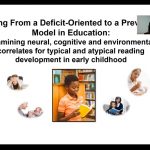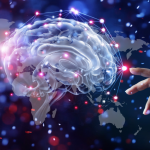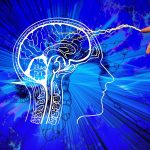CNS 2020 Press Release May 4, 2020 – In the debate about nature versus nurture for developing reading skills, cognitive neuroscientists have a clear message: both matter. From infancy, children have a neural scaffolding in place upon which environmental factors refine and build reading skills. In new work being presented today at the Cognitive Neuroscience […]
CNS 2020 Day 2 Highlights
Day 2 of CNS 2020 Virtual started off strong with the first invited symposium, chaired by Christoph Kayser, and featuring a terrific panel of speakers on the role causal inference for perceptual decisions and adaptive behavior. Midday, Marlene Behrmann (Carnegie Melon University) delivered her Fred Kavli Distinguished Career Contributions in Cognitive Neuroscience award lecture on […]
CNS 2020 Virtual: Day 1, First Impressions
Today was the first day of a new type of scientific conference — an entirely virtual annual CNS meeting. We are excited to be able to pioneer this new format in the face of the COVID-19 pandemic, to bring you all the great cognitive neuroscience originally planned for our meeting in Boston in March, but […]
CNS 2020 Virtual
CNS 2020 Virtual: Update March 20, 2020 We are pleased to announce the dates of the CNS 2020 Virtual Meeting as May 2-5, 2020. The meeting will be very similar to the Boston meeting in terms of organization and will have virtually all of the original content, plus new presentations — all using the platform […]
Cognitive Neuroscience Society joins FABBS
The Cognitive Neuroscience Society (CNS) is excited to announce that we have joined the Federation of Associations in Behavioral & Brain Sciences (FABBS). As many of our members will be aware, FABBS works to advance the sciences of the mind, brain, and behavior by advocating for our fields and representing our research community in Congress, […]
Juggling the Early Years of a Cognitive Neuroscience Career
Shelby Smith remembers feeling inspired and humbled the first time she attended the professional development panel at an annual CNS meeting. “There is just something about being in a room filled to the brim with other students where the only purpose of being there is to show you that you’re not alone and that there […]
It’s All Relative: Cooperation Makes People A Special Type of Ape
Q&A with Michael Tomasello When Michael Tomasello was an undergraduate student at Duke University studying developmental psychology, he studied the theories of Jean Piaget, a psychologist who thought evolutionarily. “He was looking at children like they were a different species,” Tomasello recalls. “He would always emphasize that they have their own way and own logic, […]
Modeling Learning Across the Lifespan
Q&A with Catherine Hartley At a special session on the relation between psychology and neuroscience at last year’s CNS conference in San Francisco, Catherine Hartley said: “Even if we can predict behavior, if we don’t know how it works, we likely have not achieved our goals.” While computational algorithms and tools may help researchers predict […]
Revealing the Cognitive Sorcery of Human Intelligence
Q&A with Sam Gershman In the last decade, computational techniques have expanded the toolkit for scientists across disciplines. In neuroscience, computational models are increasingly rendering “visible things that were previously invisible,” says Samuel Gershman, a cognitive neuroscientist at Harvard University. “Computational modeling is not a niche activity. It’s the same theory-building activity in which all […]
Mapping the Brain’s Visual Behavior One Tidbit at a Time
Q&A with Marlene Behrmann For the past 30 years, Marlene Behrmann has been on a mission to answer some of the biggest questions in cognitive neuroscience about how visual function in the brain maps onto structure. Along her journey, she has explored a wide range of topics, including autism, migraines, aphasia, agnosia, and more. “These […]











